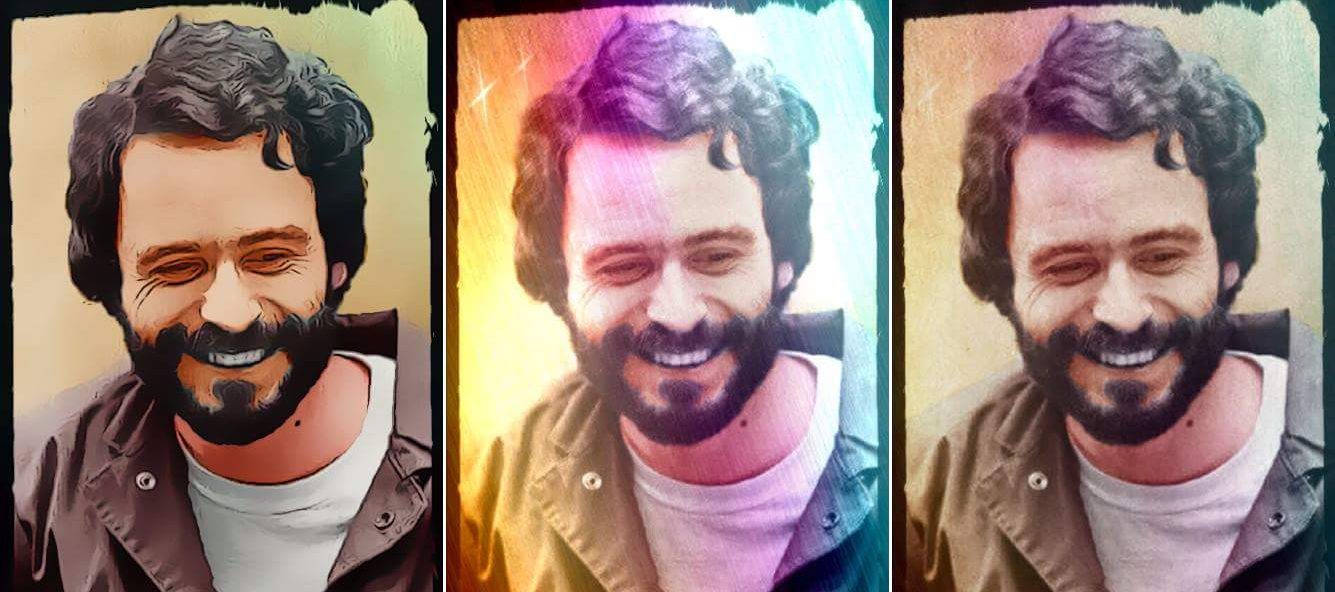There has long been speculation over whether Ted Bundy drank alcohol in order to commit his string of murders through the years, or whether it affected him much at all. We know that he admitted, on more than one occasion, that he imbibed in alcohol and marijuana often in order to build up his courage when his urges took a dark turn. However, he was a consummate liar, so it is left to us to discern just how many of his actions were motivated by intoxication and how many were motivated by a truly devious desire to kill.
Drinking alcohol often removes feelings of stress and anxiety while alleviating negative feelings. It can decrease one’s inhibitions, making it easier to commit crimes and feel less anxious while doing so. It may have acted as a lubricant so Ted could psych himself up and have that added motivation to commit each murder. Renowned professor of forensic psychology Dr. Katherine Ramsland noted that “It would help him to feel more prepared to do it.” We know he drank socially according to his long-time girlfriend, Liz Kloepfer, but it seems that he was drinking outside of the time he spent with her.
Alcohol creates a slower reaction time, something we can see during Bundy’s attempted kidnapping of Carol DaRonch in Murray, Utah. She smelled alcohol on his breath and when he tried to get handcuffs on her during their car ride, he missed, allowing her time to escape. Bundy was also quite intoxicated during more than one arrest. Alcohol creates hazy thinking and poor concentration, so it could be partially to blame when Ted was unable to talk his way out of these arrests.

Despite his inclination towards imbibing, it’s doubtful Bundy got completely drunk before killing, especially during his early years. His murders between 1974 and 1975 were too sophisticated for someone to commit without detection if he had been drunk. Ted was able to convince Carol DaRonch to get into his car. To me, this suggests he wasn’t fully drunk during this murder attempt. This contrasts greatly with Bundy’s Florida crimes. Though no survivors of his 1978 killings recalled smelling alcohol, Ted had been to a club earlier that evening, no doubt downing drinks to prepare himself for his gruesome plans.
Bundy once quipped that “…it might make more sense to describe the state of the individual – by indicating that on every occasion when he engaged in such behavior, he was intoxicated.” However, this is quite probably his attempt to diminish his responsibility in committing his many atrocious acts. Dr. Ramsland added that “At first he drank ‘to do what he was doing,’ but as his reign of terror went on, he no longer needed the liquor as his liquid courage; he simply liked imbibing.”

The origins of Ted’s desire to consume alcohol may have started early. From what we know about Bundy’s ancestry, his grandfather was a violent alcoholic. If the rumor is true that Samuel Cowell was also Ted’s father, it would increase Bundy’s genetic disposition towards addiction to alcohol, among others. We also know that young Ted often saw his grandfather lash out in anger against all of the women in his household, therefore normalizing this behavior. Psychologists have suggested that children often mimic the behavior they witness growing up, so it’s not out of the question to imagine Ted reenacting his grandfather’s intoxicated behavior during his crimes.
Bundy himself suggested that he often drank before committing crimes, indicating it helped calm his anxiety before approaching a prospective victim. Giving author Stephen Michaud a glimpse of his reasoning and referencing himself in the third person, he said, “I think you could make a little more sense of much of this if you take into account the effect of alcohol. It’s very important as a trigger. When this person drank a good deal, his inhibitions were significantly diminished.”
It seems likely that Bundy merely used alcohol as a means to an end, a way to allow his dominant personality to take over with wild abandon. By doing so, he would be less likely to hesitate when attacking a victim, instead, committing himself fully to the act. He had imagined each killing in his head so many times that most of it came to him naturally, and he didn’t have to rely on reason until long after he snapped out of his fantasy. Still, as time wore on, Ted became more and more unhinged. Had he not been caught on the run in February 1978, would he have spiraled out even more, allowing his addiction to both murder and alcohol to totally consume him? Thankfully, we will never know.
SOURCES:
Shenfeld, H. (2018, October 1). How serial killers get in the mood for murder. Retrieved from www.aetv.com/real-crime/serial-killer-rituals-prepare-to-murder-jeffrey-dahmer-btk-ted-bundy
Alcohol and depression. Web MD. Retrieved from https://www.webmd.com/depression/guide/alcohol-and-depresssion#1
Michaud, Stephen, Hugh Aynesworth. Conversations with a Killer. pp. 71-72. Authorlink, 2000.
Brande, L. (2019, November 1) Effects of alcohol on the body. Retrieved from https://www.recovery.org/alcohol-addiction/effects-body/


You are absolutely awesome EJ. I am proud to know you and more proud to be your mother!!!
LikeLike
Thanks Mom! I’m happy to have you as a fan, considering you were probably my first fan. 😉
LikeLike
He seemed to be the poster boy for Murphy’s Law when it came to cars which makes me wonder if he had alcohol in his system most times when driving?
LikeLike
Either he was continually drunk or just a terrible driver!
LikeLike